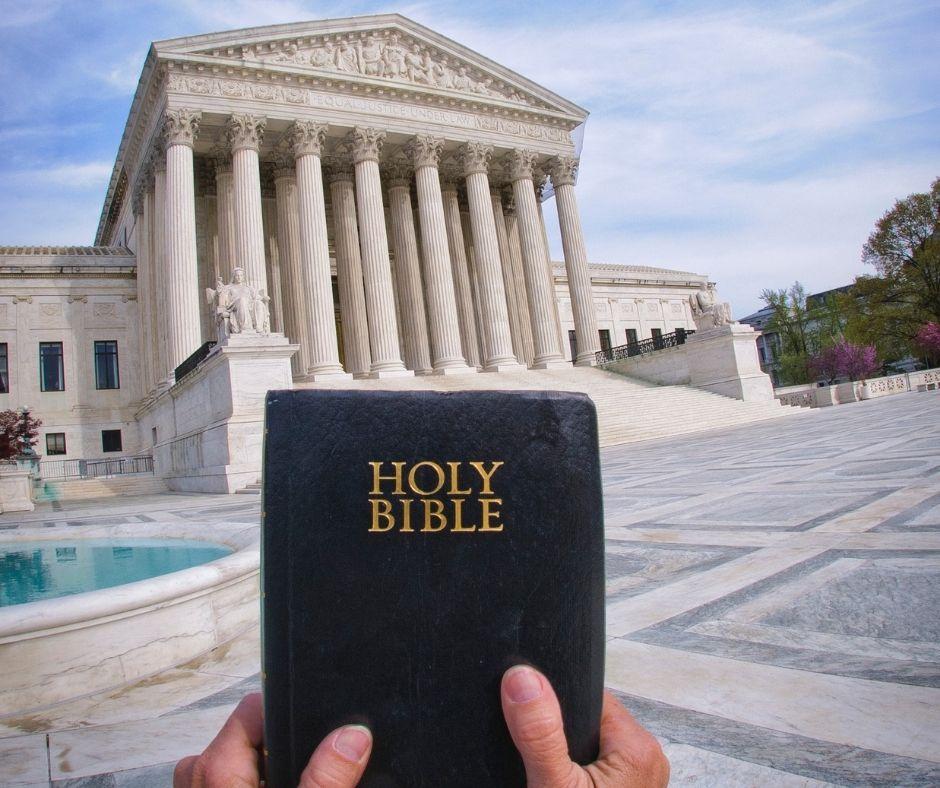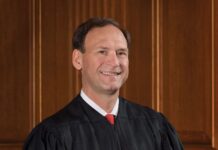Liberty Counsel filed its reply brief today to the U.S. Supreme Court in Shurtleff v. City of Boston, arguing the city of Boston violated the First Amendment by censoring a private flag in a public forum merely because the application form referred to the flag as a “Christian flag.” Liberty Counsel represents Hal Shurtleff and his Christian civic organization, Camp Constitution, and will present oral argument beginning at 10 a.m. on Tuesday, January 18. A press conference will follow outside of the Supreme Court.
The reply brief argues that the central focus of this case is whether the city flagpoles are a public forum as Boston has advertised. If a private speaker such as Camp Constitution challenges exclusion from government property, then the High Court must begin with the public forum consideration. For example, is the government property a traditional public forum? If not, has the government—by policy or practice—designated the property a public forum for private speech? Or, has the government designated the property a public forum limited to speech on certain topics or by certain speakers? If the answer to any of these questions is “yes,” then forum analysis determines the validity of the government’s exclusion of the private speaker such as Camp Constitution by applying the applicable level of constitutional scrutiny. Only if the answer is “no” should the government speech doctrine be considered.
The city, by policy and practice, designated its city hall flagpoles as a public forum for private flag raising events, accessible to all applicants through a minimal application process. To the extent the city’s policy or practice limits the flagpoles to flag raisings commemorating one of Boston’s diverse communities (e.g., Argentinians, Caribbean Americans, or credit union members), or a significant date (e.g., Bunker Hill Day, Juneteenth, or Marcus Garvey Day), or a cause (e.g., Pride, Walk for Peace, or organ donation), the city has created a limited public forum, for which Camp Constitution’s proposed flag raising to commemorate Boston’s Christian community and the federally recognized Constitution Day and Citizenship Day satisfied all legitimate criteria. The city’s exclusion of Camp Constitution from the flagpole forum was unconstitutional viewpoint discrimination under any standard, and thus the forum analysis ends the case.
While this case can be resolved under the public forum doctrine, it also presents the Supreme Court with the opportunity to set clear parameters around the recently minted government speech doctrine so that it does not swallow the public forum and restrict private speech. This case is a clear example of the danger the government speech doctrine presents to free speech. Here, Boston had a longstanding practice and policy to open its flagpoles for private speakers, and in its own words created a “public forum” open to “all applicants.” But, after 12 years of no denials and virtually no review of the applications, Boston censored Camp Constitution’s Christian viewpoint under the guise of government speech.
Boston never censored any flag until Camp Constitution’s flag. Under oath, the city official testified the flag would have been approved if the application did not refer to it as a “Christian flag.” The word “Christian” on the application alone triggered the censorship. The official testified that if the application had referred to the flag as the “Camp Constitution Flag,” then it would have been approved.
Boston now argues that despite the policy and longstanding practice, the private flag raisings are government speech. However, the flags cannot be Boston’s speech. For example, the Chinese Progressive Association raises the flag of the People’s Republic of China (PRC) to commemorate its celebration of Mao Zedong’s 1949 victory in the communist revolution that established China’s currently recognized government. But usually within mere days after the PRC flag raising, the flag of democratic Taiwan is flown on the same flagpole. This flag is also called the flag of the Republic of China (ROC) representing the Chinese Nationalist government deposed by Mao’s 1949 victory and exiled to the historically disputed territory of Taiwan. Many sympathetic to mainland China view the ROC flag as subversive to the PRC, which would make Boston’s raising the ROC flag a form of “protest or other speech antithetical to” the message the city purportedly communicates through the PRC flag. The flags represent classic free speech in a public forum.
Liberty Counsel’s Founder and Chairman Mat Staver said, “Boston opened a public forum for ‘all applicants’ and then slammed the door on Christian viewpoints. If Boston prevails, every local government will have a green light to censor viewpoints with which some government official disagrees. The tragedy would be the shrinking of the public forum as a marketplace of ideas. More speech is always better than less speech. This case is of national importance to protect the competing viewpoints of the public in the marketplace.”

















